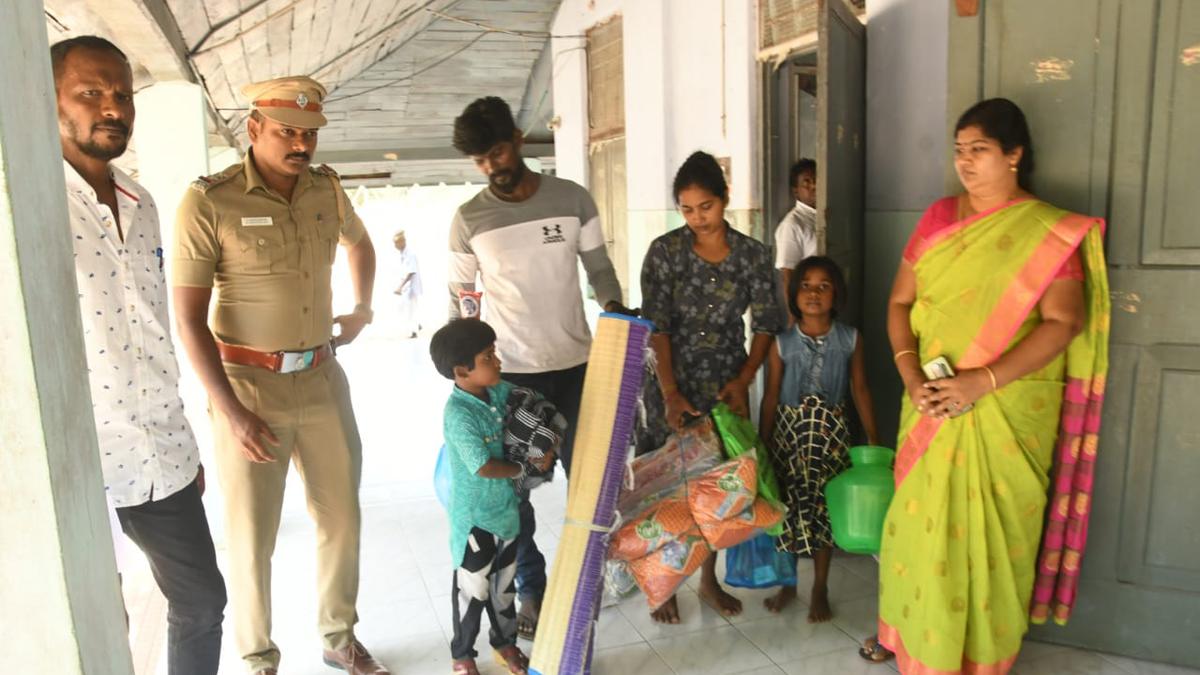
Four Sri Lankans arrive in Dhanushkodi, say economic crisis has made life unaffordable in the island nation
The Hindu
Four of a family from Jaffna in Sri Lanka reached the Dhanushkodi islet on a boat in the early hours of Monday, Marine Police in Rameswaram said. The Mandapam Rehabilitation Centre now houses about 270 people from Sri Lanka who have arrived since early last year, when the island nation suffered an economic crisis
Four of a family from Jaffna in Sri Lanka reached the Dhanushkodi islet on a boat in the early hours of Monday, Marine Police in Rameswaram said.
Preliminary investigations revealed that the people identified as M. Pradeep Kumar (37), his wife Mary (34), daughters Kruthiha (7) and Krismitha (4) had been living in Jaffna. Due to the ongoing economic crisis in Sri Lanka, the family said they were unable to survive as essential commodities were either scarce or unaffordable. Hence, they decided to leave the island nation about a week ago. After paying ₹ 1 lakh in Sri Lankan currency to a local agent in Mannar, they were asked to get into a vessel on July 30, 2023 (Sunday) and after about two hours of sailing, they were dropped off at the Dhanushkodi islet at around 1.30 a.m. on Monday.
Following the receipt of information, the Marine Police went to the spot and brought the family to the shore for an investigation. Subsequently, they were handed over to the officials at the Mandapam Rehabilitation Centre.
Officials at the rehabilitation centre said that about 270 people from different parts of Sri Lanka had arrived here through the Palk Bay, and have been at the Centre since the economic crisis began in the island nation in February 2022. The Tamil Nadu government has provided shelter and food to these residents. Two people had since died due to age-related ailments.
A majority of the people had been working as daily-wage earners in Sri Lanka, and as the economic crisis had worsened, they had sold their movable and immovable property and come to Rameswaram. According to the Sri Lankan Tamils, essential commodities such as milk and rice were being sold at 10 times their cost, or more. Petrol and diesel were unavailable. Construction work had come to a grinding halt and hence, they had no employment and were only managing to get work two or three times a week.











